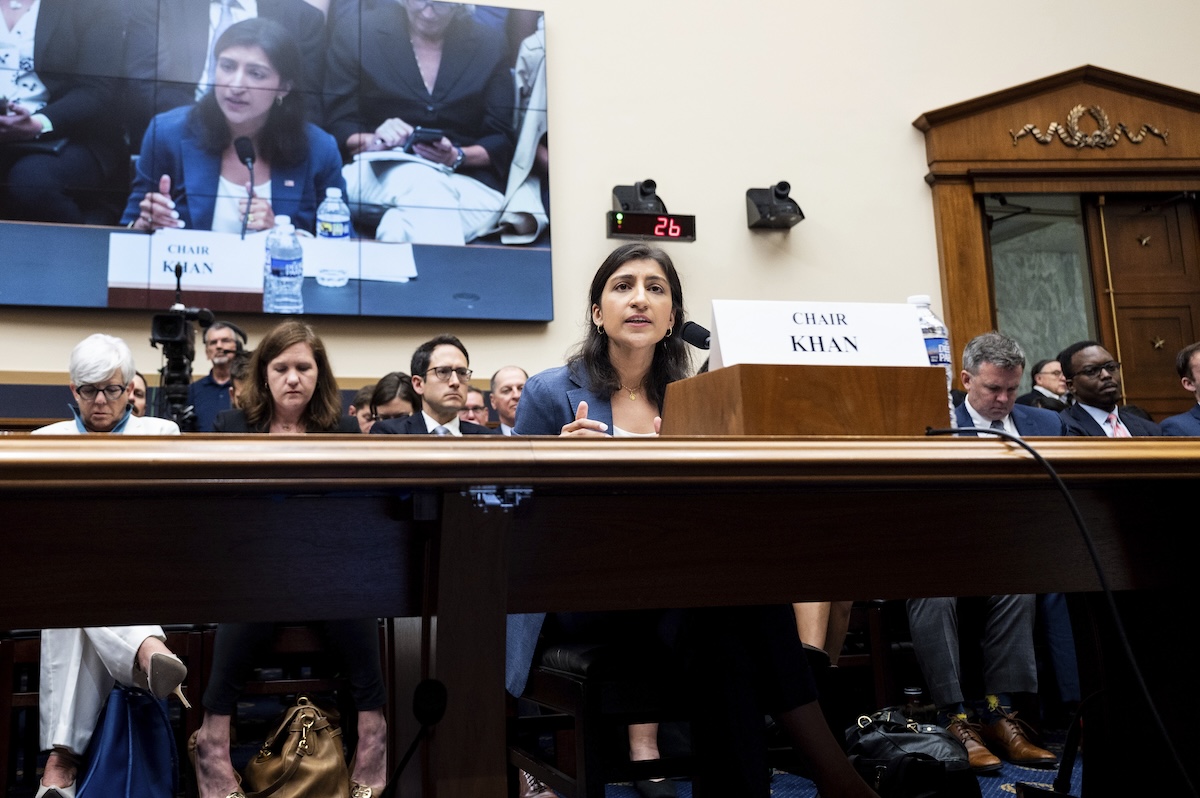Alexander Hamilton, one of America’s Founding Fathers, envisioned a nation not just agriculturally strong but also one that proved to be an industrial powerhouse. His plan centered on a strong private sector with competitive businesses and a supportive, not restrictive, government. That laid the groundwork for the nation’s economic success—today envied by the world. Fueled by an innovation-friendly environment, America has birthed tech titans like Amazon, Apple, Google, Meta, and Microsoft. These companies have revolutionized entire industries, from communications and information to online shopping and cloud computing. Their relentless competitive edge drives innovation, leading to a wider range of consumer products and new waves of creative destruction like artificial intelligence.
Despite consumer satisfaction and the positive impact of innovation, a wave of radical antitrust sentiment is surging in America. This activism has come to be embodied by the “neo-Brandeisian” antitrust movement that under the Biden administration has captured the leadership of both the Department of Justice (DOJ) and the Federal Trade Commission (FTC). For these radicals, America’s tech companies are as much a curse as a blessing, wielding power that the agencies allege is the result of failed antitrust policy. What’s more, ire against big tech companies risks becoming common ground across factions in both political parties. For example, while Democrats like the neo-Brandeisians see large tech firms as “threats to democracy” that spread “misinformation,” some Republicans claim that those same companies are too “woke” and that they “unjustly censor” right-of-center users.
One recent case highlighting this weaponization of antitrust against America’s tech giants—brought by the Trump administration and aggressively carried on by the Biden administration— is the FTC’s challenge against Facebook (now Meta) over its acquisitions of Instagram and WhatsApp. The FTC argues that these acquisitions were part of a strategy to eliminate potential competitors and solidify Facebook’s monopoly in the “personal social networking” market, defined as services built around friend and family connections. Meta argues that this definition is artificial and ignores the many ways users connect on other platforms, such as TikTok, X (Twitter), LinkedIn, Pinterest, Apple, and YouTube. Meta also insists that it remains a dynamic company that offers a free service and thus does not exhibit signs of a monopoly—for example, high prices, restricted output, or reduced innovation.
In addition to the use of flawed antitrust analysis, another problem with the neo-Brandeisians is that, for all their talk about politics and democracy, they overlook the impact of their antitrust program on America’s global competitiveness. This is not limited to breaking up America’s largest tech companies. For example, the FTC’s recent case against the Tapestry (owner of Coach, Kate Spade, and Stuart Weitzman) and Capri (owner of Versace, Jimmy Choo, and Michael Kors) merger shows hostility to consolidating “accessible luxury” in the U.S. handbag sector, which can be seen as an effort by U.S. fashion company Tapestry to build a luxury conglomerate able to compete with European giants like LVMH (Moët Hennessy Louis Vuitton and Kering), which owns brands like Gucci and Saint Laurent. By hindering the ability of American companies to consolidate and achieve economies of scale, the neo-Brandeisian approach weakens them on the global stage. By contrast, China—the real threat to liberal democracy around the world—has been actively promoting the consolidation of its domestic companies, creating powerful conglomerates that can compete more effectively with American firms.
At bottom, the FTC has a problem with big companies and seeks to “belittle” them by using antitrust enforcement. Although the FTC has a bad record in attacking tech companies, having unsuccessfully challenged mergers like Microsoft–Activision Blizzard and Meta–Within, its “big is bad” approach nevertheless taps into currents deep within the American psyche. Traditionally, American distrust of “big” institutions found expression in limited government, the separation of powers, and federalism. However, Justice Louis Brandeis’ work titled The Curse of Bigness (1934), which criticized the power of large banks, money trusts, powerful corporations, and mass consumerism, helped popularize the idea of “big is bad” in the context of the private sector. This philosophy was empowered by the New Deal, which led to absurd results in the form of courts blocking mergers that resulted in less than a 10% combined market share. As a result, at the beginning of the 1970s, antitrust law became refocused on a consumer-welfare standard that became the backbone of antitrust policy for over 40 years, providing a relatively objective basis for antitrust enforcement.
The consumer-welfare model worked to help make America the economic powerhouse that it is. Bigness not only drives scale but also incentivizes firms to make the investments in research and development that enables innovation and ultimately economic growth. As such, by moving away from “big is bad,” modern American antitrust policy laid the foundation for large technology firms that spearheaded the digital revolution and helped keep America competitive in the wake of a rising China. By contrast, Europe in essence has adopted a variation of the “big is bad” competition policy and boasts no large digital firms of its own to speak of, with the global share of wealth of western Europe falling by nearly half since 1980.
As artificial intelligence emerges as the new technological revolution that will play a key role in determining global competitiveness, FTC Chair Lina Khan and the neo-Brandeisians want the United States to adopt Europe’s failed competition policies and effectively retreat to the Progressive era. But as past decades have shown, the traditional American model of free markets, economic growth, and competitiveness has again proved its worth and remains vital for both domestic and global prosperity. Moreover, the Founding Fathers’ concerns over big government are still critical in light of an FTC that seeks to overstep its authority and vindicate the Founders’ warnings against a destructive union of executive, legislative, and judicial power. In short, the core principles of creative destruction and limited government regulation are what have made America great. Amid an increasingly challenging and unstable world, now is not the time to turn the American Dream into a nightmare.

